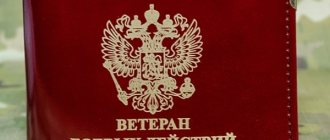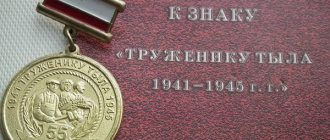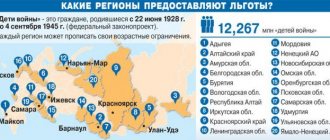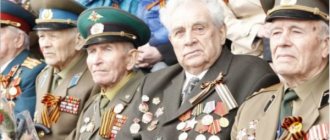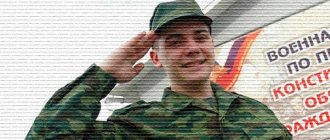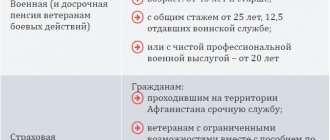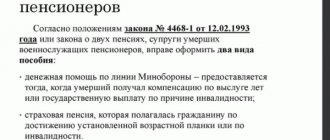Categories of citizens considered to be rear workers
Art. 2 Federal Law No. 5 “On Veterans” classifies home front workers as BOB participants and, on the basis of this, provides a number of benefits. Legislation includes home front workers as persons who, during the Great Patriotic War, namely from June 22, 1941 to May 9, 1945, worked in the rear for at least 6 months (if they were born no later than December 31, 1931) or 12 months (if they were born later than the specified date), and also have state awards for selfless actions during the war. The right to appropriate payments is confirmed by a special certificate.
What benefits are available to WWII veterans and citizens equivalent to them?
- Providing housing (carried out once, does not depend on the financial situation of the veteran).
- Reimbursement of 50% of utility bills.
- Installation of a landline telephone out of turn.
- Free medical care.
- Spa treatment.
- Free production of all types of prostheses, their installation, including dental ones.
- Paid vacation of 35 days.
- Out-of-turn service in all social institutions.
- Providing assistance by social workers at home.
Combatants have the right to free vocational training; receiving sanatorium treatment.
Legislative framework and latest changes for 2020
Federal Law No. 5 “On Veterans” describes in detail the points according to which the status of a rear worker is determined. Confirmation of the title is a worker’s certificate, which a Russian automatically receives along with the medal “For Valiant Labor”. Those born later need to prove their work activity during wartime. Evidence includes eyewitness testimony, archival documents and other information.
According to the Soviet law “On Labor,” which was in force during wartime, citizens who had reached the age of 14 could work. But such persons had to work “officially,” that is, their working hours had to be calculated and paid. Another type of minor workers are citizens who were over 12 years old and without a breadwinner in the family. This allowed the child to work like an adult. They rarely worked “officially,” so third-party testimony may be required to prove their length of service.
What rights and benefits are entitled to WWII veterans in 2020-2020?
- Vocational training or additional education paid for by the employer;
- Extension of free leave, if necessary, up to 60 calendar days;
- Vouchers to sanatoriums;
- Free replacement of vehicles after 7 years of operation, or financial compensation for its cost with proper documentation of medical indications before 01/01/2005.
- For war invalids - 5403.22 rubles;
- For participants who have become disabled - 5403.22 rubles;
- Ordinary participants of the Second World War - 4,052.40 rubles;
- For combat veterans and survivors of the siege - 2972.82 rubles;
- Citizens engaged in the construction of strategic structures, air defense maintenance, who served in military units that were not included in the active army - 1,622 rubles.
The indicated amounts include the price of a set of social services (NSS). If you wish to maintain the NSO, this amount is deducted from your monthly payments.
Reasons for prescribing assistance
Logistics documentation is provided to two types of citizens:
- Those who worked in wartime conditions from 06.22.41 to 05.9.45 with an experience of at least six months. Work in the occupied territories of the Soviet Union is not taken into account.
- Recipients of the CCCP "For Valorous Work" awards.
What categories of persons are equated to WWII participants?
3. PRESIDENT OF THE RUSSIAN FEDERATION. DECREE of October 15, 1992 N 1235 "ON PROVIDING BENEFITS TO FORMER MINOR PRISONERS OF CONCENTRATION CAMPS, GHETTOES AND OTHER PLACES OF FORCED CONTENT CREATED BY THE FASCISTS AND THEIR ALLIES DURING THE SECOND WORLD WAR"
4. MINISTRY OF LABOR AND SOCIAL DEVELOPMENT OF THE RUSSIAN FEDERATION. DECISION of July 7, 1999 N 20 "ON APPROVAL OF THE EXPLANATION "ON THE PROCEDURE AND CONDITIONS FOR PROVIDING BENEFITS TO FORMER MINOR PRISONERS OF CONCENTRATION CAMPS, GHETTOES AND OTHER PLACES OF FORCED CONTENT CREATED BY THE FASCISTS AND THEIR UNION NIKAMI DURING THE SECOND WORLD WAR"
Factors influencing the amount of benefits
A citizen who has received a worker's certificate is granted a number of benefits and preferences. At the same time, the amount of accruals is not fixed and depends on several factors:
- Age group: people born before 1932 are entitled to receive larger payments.
- Amount of work experience during the Second World War.
- Availability of labor awards.
Only work on the territory of the Soviet republics during the Great Patriotic War is taken into account. Work in the occupied territories is not included here.
Types of government support
Federal law does not provide for separate privileges for home front workers. They are provided with the same benefits as other socially vulnerable segments of the population, and in fact they are equal to veterans.
This means that the recipient of the certificate has the right to count on the following social measures. support:
- crediting cash benefits;
- provision of free medical care;
- tax discounts, up to 100%;
- free travel on public transport;
- and other preferences that make life easier for socially disadvantaged categories of the population.
Finance is allocated not only by the federal budget, but also by the regional budget under the co-financing program. The amount of support from the federal treasury is calculated based on the population of a particular region, while local governments have the right, on their own initiative, to introduce additional measures to subsidize home front workers and other beneficiaries.
Preferential provision
The provision of benefits to the persons in question is carried out on the basis of a veteran’s certificate, which gives the right to receive assistance from the state.
In addition, a citizen must clearly know which category he belongs to, based on legislative acts of state and local importance.
The social assistance package may vary significantly depending on the place of residence, which should be taken into account when changing the place of registration.
After receiving official status, a veteran has the right to count on a certain list of support measures, which relates to:
- financial assistance taking into account the status of a citizen and his region of residence;
- medical care;
- social support.
In addition, those who fought have the right to free health care, training, and housing.
All categories
Everyone, without exception, is guaranteed to receive the following privileges:
- Monthly payments of pensions and benefits according to established amounts, taking into account a certain category of citizens.
- A citizen’s one-time right to receive housing, regardless of its current availability.
- 50% compensation for the cost of utilities, which include rent and maintenance of housing, contributions to the general fund for the needs of an apartment building, provision of communications required for living, sewage disposal, payment for fuel and its transportation (in the absence of a central communications).
- Providing a landline telephone out of turn.
- Advantage when joining cooperatives and other non-profit organizations.
- Free medical care, as well as care in professional medical institutions that the veteran was enrolled in before retirement.
- Free prosthetics and refunds when paying for the manufacture of prosthetics from the veteran’s personal savings (with the exception of dental services).
- Use of annual paid leave in full or part thereof (with the possibility of using an additional 35 days of unpaid leave).
- Advantage when receiving services in communications, trade, cultural institutions, and social departments.
- Priority to receiving assistance from social services for home care, as well as admission to nursing homes.
In addition, these citizens have the right to financial payments every month (in addition to labor, social or military pensions).
Civil servants or citizens can count on state pensions at the end of their service, and it can exceed the normal amount by up to 2.5 times.
Regarding funerals for veterans, there is a separate list of services that relatives can count on:
- burial in any cemetery chosen by relatives;
- delivery by transport to the burial site;
- preparations before funeral or cremation;
- installation of a monument.
Individual privileges
In addition, there are certain types of benefits that veterans with a certain status can count on.
Thus, for disabled people of the Second World War the following are provided:
- professional or additional acquisition of knowledge at the expense of the employer;
- receiving leave at your own expense for up to 60 days;
- vouchers to health centers;
- replacement of special vehicles after 7 years of operation or compensation for its cost (if there are appropriate medical indications, documented in advance).
Participants in hostilities can claim:
- obtaining specialized education at the expense of the employer;
- provision of free vouchers to sanatoriums and health centers.
Persons who survived the siege of Leningrad and worked at strategic sites have the right to receive free vouchers for health improvement if they have officially recorded medical indications.
For rear workers
Since minor citizens were involved in labor during the war, their participation in labor activities for the benefit of the Motherland must be documented.
The honorary title is awarded to such persons by the Ministry of Labor and Social Development of the Russian Federation.
It should also be remembered that citizens who worked in the occupied territories under duress are not entitled to benefits.
In this case, the total work experience in the rear or at defensive facilities must be at least 6 months.
The list of benefits for home front workers includes:
- annual financial assistance in honor of May 9, which is established by local governments;
- free (or with a 10% discount) trips with medical certificates;
- payment for travel to a place of treatment or recreation;
- 50% discount on payment for real estate, regardless of the basis for its ownership;
- provision of a social card for travel in city or railway transport within the region (with the exception of high-speed luxury trains);
- benefits for water transport tickets;
- free medical care in district and city clinics;
- discount on medicines at any pharmacy;
- priority entry into non-profit and residential organizations, nursing homes or specialized boarding schools;
- the use of social support measures and government subsidies when obtaining a mortgage (if existing housing does not meet technical requirements or is not registered as property);
- assistance to relatives during burial and installation of a monument.
Separately, the right to medical support in this direction from the state should be highlighted:
- provision of medications according to a doctor’s prescription (in the absence of the required drug, replacement with an analogue or a special order to meet the needs of the worker at the expense of the state);
- free medical care in government institutions;
- dentures containing precious metals or ceramics (at the expense of the municipality).
It should be remembered that the amount of subsidies and assistance depends on the region of residence of the veteran.
Regional privileges
According to Art. 20 of Federal Law No. 5-FZ “On Veterans”, the federal center delegates to the regional administrative authorities the right to assign payments and assign preferential characteristics to persons living in the territory of these regions. This means that different federal entities have the right to determine their own measures to provide for home front workers.
In the Stavropol Territory
The legislation of the Stavropol Territory does not provide for free travel passes for home front workers. Instead, the regional administration simply compensates the veteran’s public transport costs from the budget.
Who is Equated to Veterans of the Great Patriotic War
Do you have an answer to this question? You can leave it by clicking on the Reply button. Similar questions Are combat veterans subject to a fine under Article 20.20 of the Code of Administrative Offenses of the Russian Federation? Please tell me if there is a difference between a combat veteran and a combat participant. Do combat veterans enjoy benefits when enrolling their child in kindergarten, and in accordance with what law? Do veterans of military operations in Chechnya have benefits in providing a free lawyer in a civil case regarding the lack of funds of the receipt.
Systematize and make truly accessible (transparent) benefits for combat veterans. Consider the issue of rehabilitation, provision of benefits and additional payments to persons who received injuries and injuries that caused harm to their health.
Registration and receipt of additional payments
The procedure for receiving benefits due to labor veterans is as follows:
- Collection of a package of papers certifying the person’s employment status.
- Filling out and submitting an application to regional social authorities.
- Submission of documentation (on request).
- Obtaining a decision from the administration.
- Obtaining appropriate preferences.
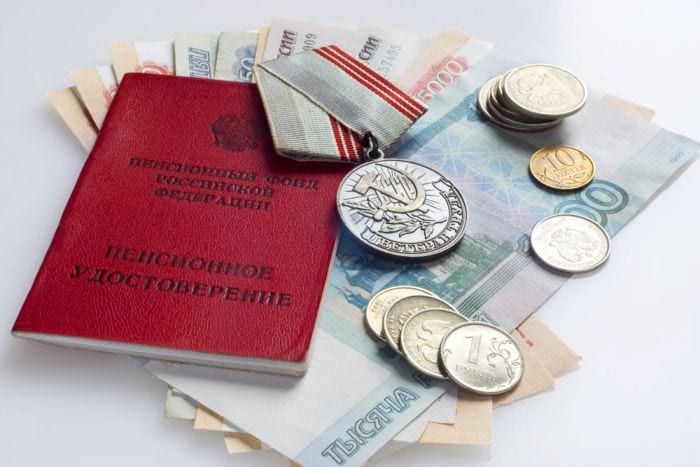
Where to contact
You can obtain the status and document of a home front worker by contacting the regional department for social protection of the population. In most cases, the nearest department of the authority at the place of residence is selected. An appropriate package of documents must be submitted with the application.
Package of required documents
To confirm the status of a home front worker, the following documents are required from a person:
- the applicant's civil passport;
- photo 3x4;
- employment history;
- any papers certifying the employee’s work experience during the BOB period;
- (optional) rewards for work in the period from 41 to 45;
- witness testimony about the applicant’s work activities with the provision of documents confirming this.
Social workers You must submit duplicates of each document to the defense, along with the originals. When the employee verifies their authenticity and signs, he will return the documents. The final decision is made within 30 calendar days.
Who is Equated to Veterans of the Great Patriotic War
- home
- Politics news events comments
- Recommendation Problem Overview
- Review of legislation comments
- Review of legislation
- Social issues
- Arbitrage practice. Court decisions
- Inheritance and its registration
- Legal consultation
- News
- Photo album
- Search
- Contact
- Questions about inheritance
- Certificate from the place of employment about the person’s total work experience.
- Work book (if a person works, it is not necessary to provide a work book, a certificate is sufficient).
- Home front worker's certificate.
- Certificate confirming residence in Leningrad for the period of the siege.
- WWII veteran certificate.
- Documents confirming disability. Since the disability pension is also issued in the Pension Fund of the Russian Federation, it is possible to apply for an MSE (medical and social examination) report and simultaneously issue two types of pensions.
When a home front worker may not be given benefits
In some cases, social security authorities have the right to refuse to provide benefits. Here are the possible events in which a failure may occur:
- if the applicant does not have evidence of work experience during the Great Patriotic War;
- the package of documents is incomplete or at least one of the papers is missing;
- the applicant is already the owner of similar benefits;
- if the regional administration simply does not provide such benefits.
Also, regional accruals stop if a home front worker moves for permanent residence to another region of Russia. In this case, he needs to submit an application to the local social security authorities. If a veteran dies, all benefits are transferred to his widow/widower.
In Russia, home front workers are entitled to an expanded list of benefits. To receive benefits and preferences, you must meet a number of requirements and seek help from your local social security office. And in order for home front workers not to be denied benefits, it is important to correctly collect a set of documentation and check whether the citizen is currently a beneficiary.
Are payments due to the heirs of WWII participants?
- additional payments to pensions in accordance with the current set of laws and regulations;
- priority right to membership in housing, housing construction, garage cooperatives, gardening, gardening and dacha non-profit associations of citizens;
- provision of preferential housing financed by the state program to relatives of deceased (deceased) WWII participants who need improved living conditions, this presupposes the current housing code of norms and rules of Russia;
- preservation of services in clinics and other medical institutions to which family members were also attached during the life of the veteran during the period of working activity until retirement, as well as priority receipt of medical care under certain government programs guaranteeing the provision of free medical care to Russian citizens in government institutions healthcare in the manner established by the Government of Russia, and in clinics and other medical institutions of the constituent entities of the Russian Federation in accordance with the code of laws and other legal documents regulating the actions of the constituent entities of the Russian Federation in this regard;
- reduction of payment in the amount of half of the occupied total area of residential premises (in communal apartments, relative to the directly occupied living space), including by members of the veteran’s family who lived with him under the same roof. This kind of social benefits for housing payments are provided for this category of citizens living in houses, regardless of the type of housing stock;
- reduction in the total cost of utilities by half within the limits of their standards determined by local authorities;
- reduction in cost by 50% for purchased fuel and its delivery (in the absence of central heating in the house where the beneficiary lives), within the established standards, for sale to the public. This supply of fuel to relatives of veterans is carried out first of all in relation to other citizens. These types of benefits for all types of the above services will be provided regardless of the type of housing stock. Moreover, in accordance with current legislation, it does not matter which specific relative of the veteran will be the owner or tenant of this residential premises;
- provision of vouchers to sanatoriums, dispensaries and other health institutions, first of all, subject to the availability of appropriate medical indications, at the last place of work of the deceased;
- admission, first of all, to homes for the elderly with disabilities and the like, social service centers, as well as admission, first of all, to the services of social assistance departments at home from the husband or wife of the deceased.
Regarding other payments, then relying on Art. 21 of the Federal Law “On Veterans”, only dependent disabled relatives who were supported by a disabled person or a participant in the Second World War immediately before the death of the latter can apply. Given the age of veterans, finding such relatives today is quite difficult.
